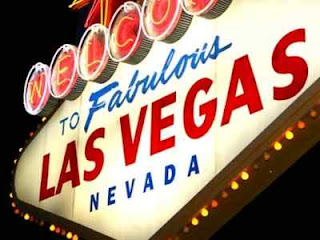Las Vegas/Reno still on government meeting blacklist
Is Las Vegas too fabulous?
Earlier this year, President Obama specifically condemned companies who received bailouts and then held meetings in Las Vegas. As business after business - fearing political backlash - cancelled their trips and conventions here, the Vegas tourism and meeting industry took a beating at the time it could least afford it. Mayor Oscar Goodman loudly expressed his outrage and demanded that President Obama apologize.
Last week the RJ reported that Sen. Harry Reid had gotten the White House to issue a letter saying it was OK to come to Vegas for a government meeting.
Federal government workers shouldn't have to leave in the dead of night or slink off when the boss isn't looking to attend meetings in Las Vegas, say Sen. Harry Reid and White House Chief of Staff Rahm Emanuel.Turns out that letter isn't enough for some government agencies who fear a political backlash if they meet in Las Vegas or Reno. Instead, they're going to boring cities.
That's Reid's take on a recent letter from Emanuel saying, "Federal policy should not dictate the location where such government events are held."
The letter from President Barack Obama's right-hand man was a response to Reid's request for a reversal of a perceived "informal federal policy" that was prompting government workers to cancel scheduled meetings and avoid booking new ones in Las Vegas to avoid any appearance that taxpayers are funding bureaucrat junkets to the biggest party town in America.
What do Reno, Orlando and Las Vegas have in common? To some pockets of the federal government, they just seem like too much fun.The letter of pardon from the White House isn't working.
Instead, employees at some big agencies, like the U.S. Department of Agriculture, are being encouraged to host meetings in more buttoned-down places such as St. Louis, Milwaukee or Denver...
Travel industry lobbyists say government policies have essentially resulted in a blacklist of banned destinations that is punishing travel-dependent states, such as Nevada and Florida. Those destinations, which have tens of thousands of hotel rooms and millions of square feet of conference space, often offer the best deals on meetings and conferences, say officials from the U.S. Travel Association.
"We get the sense that these agencies are worried about scrutiny, and in order to avoid criticism from the media they are essentially willing to spend more money and do things that they think will prevent them media scrutiny," said Geoff Freeman, senior vice president of public affairs for the U.S. Travel Association. "In the quest to demonize travel, we're killing jobs."
An estimated $240 billion was spent on business travel in the U.S. in 2007, Mr. Freeman said; the association estimates that 2.4 million American jobs rely on business travel.
In recent months, resort destinations like Las Vegas have suffered as companies have scaled back on hosting conferences and meetings. In some cases, events were canceled because of budget cuts. But in others, events were relocated to avoid the appearance of extravagance.
But some agencies appear to be instituting their own guidelines that dictate where events should be held.This is a perfect example of why government shouldn't pick the winners and losers in an economy.
According to an Agriculture Department employee familiar with the guidelines, the agency issued internal travel guidelines in the spring that encourage employees to hold meetings in cities that display three key attributes: a travel hub; low in cost; and "a non-resort location." The employee said cities on the list with those three attributes included Chicago; Denver; Portland, Ore.; St. Louis; Washington, D.C.; Milwaukee; Phoenix and Fort Collins, Colo.
Las Vegas, Reno and their citizens have worked hard to become two of the country's most popular convention and vacation destinations. Because people want to come here, the free-market system has rewarded Nevadans with jobs and profits.
But with government picking the winners and losers, being popular isn't enough - in fact, it's a disadvantage. If Las Vegas and Reno didn't do such a great job of meeting consumer demand, they wouldn't be targeted by politicians.
Think about that. Success is punished. Mediocrity is rewarded. Anticipating and meeting the whims of politicians replaces anticipating and meeting the wants of consumers.
Consumers, in this case government employees, are also hurt.
In this case, their pain may be limited to boredom. But what happens when the government starts deciding they want to pick the winners and losers in something like ... health care? Oh, wait, we already know.
The other irony is that because Las Vegas and Reno are some of the biggest vacation spots in the world, they also have some of the best rates for meetings and conferences. But because the measure for success is now politics, that doesn't matter. And taxpayers will be left holding the bag.
I've put a call in to Sen. Reid's office to try to get his response to the WSJ article, since he was quite proud of the letter from the White House. I'll update this post if I hear anything back.






